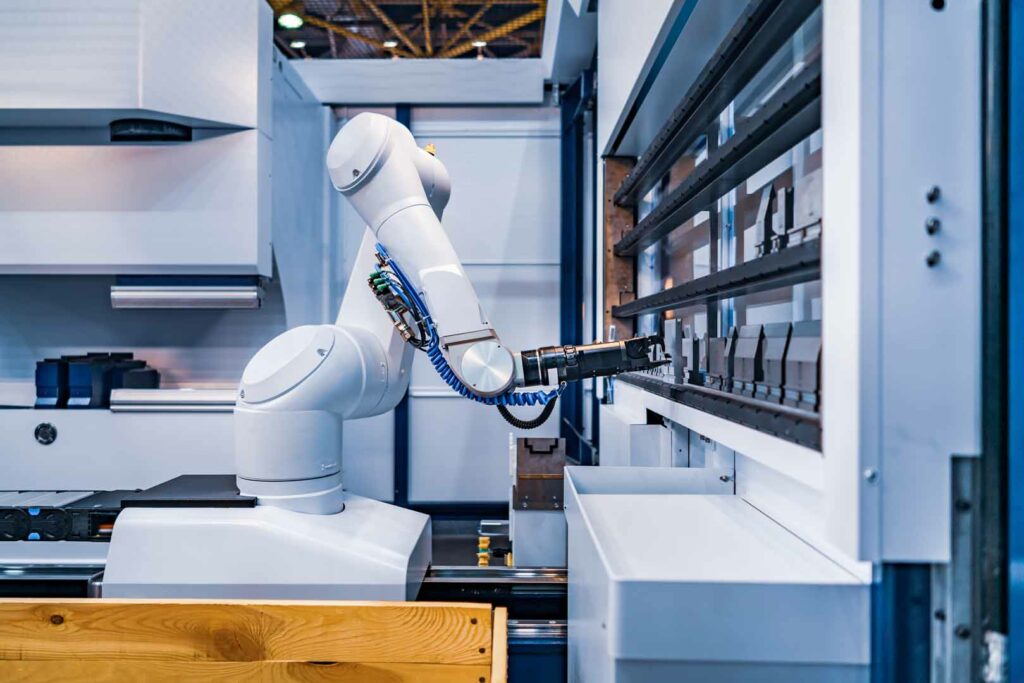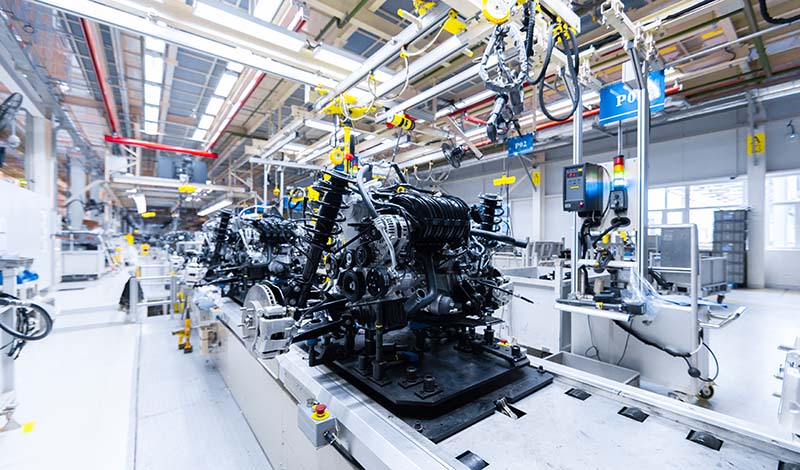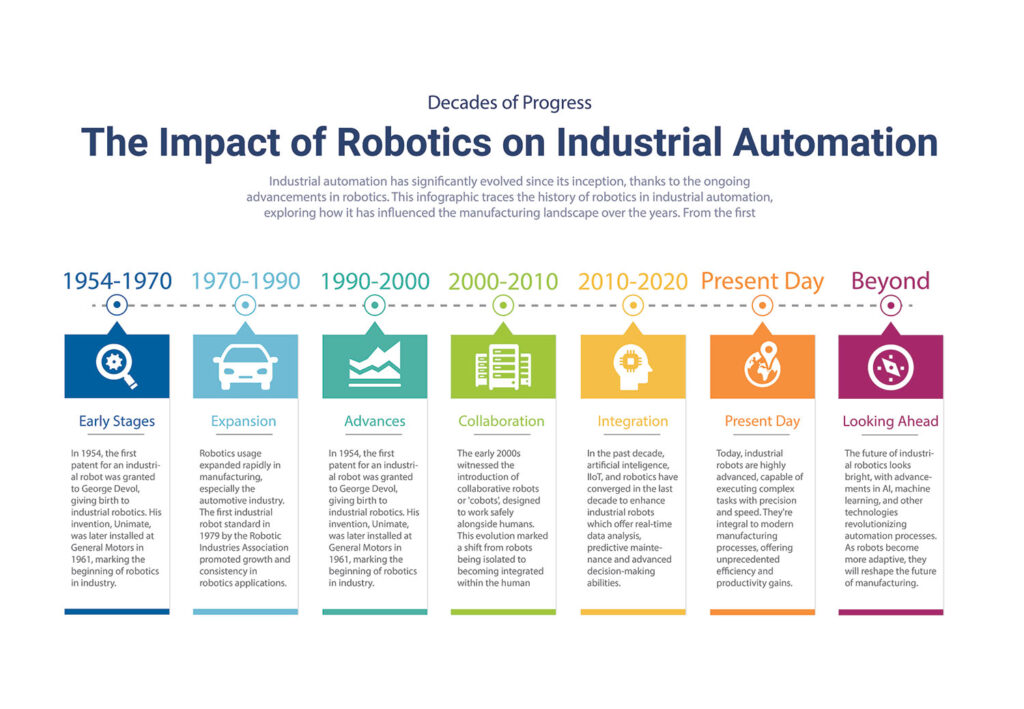
Industrial automation has made a big leap. From the first machines on the factory floor to now, it’s clear the industry has transformed. This shift has completely changed the way we manufacture goods.
Digital changes over the recent years have sped up this shift. New tech, once just an idea, is now very real. It’s helping us work smarter, faster, and with more precision.
The move toward more automation in manufacturing is not just a passing fad. It’s the here and now, and it’s our future.
Robotic technologies have played a huge part in this change. Robots, which used to only do simple tasks, are now much more advanced. They can take on complex jobs and can work well with people. As robots get more skilled, they are having a bigger impact on trends in industrial automation.
In this article, we’re going to explore the growth of industrial automation. We’ll look at how robotics are playing a bigger role, and what trends are shaping the future of manufacturing. Come along with us as we explore the exciting move towards a more automated world.
Robotic Process Automation (RPA) is changing how companies work. RPA is a tech that uses software robots, or ‘bots’, to do repetitive tasks that people used to do. This change makes things run more smoothly and accurately, letting workers do more important tasks.
RPA software has a big effect on how efficiently a business runs. By using bots to do basic tasks, companies can work faster, make fewer mistakes, and save time and money. Plus, as more manufacturing tasks get automated, businesses can shift their focus to bigger goals.
RPA doesn’t just help with manufacturing. It can also make customer service better. With RPA, companies can respond to customers quickly and correctly. This makes customers happier and more loyal.
Digital transformation is the key driving force behind the way manufacturing automates. It’s the process of integrating digital technology into all areas of a business, changing how the company operates and delivers value to its customers. In manufacturing, this means incorporating advanced technologies, such as RPA software, to streamline operations and improve efficiencies.
The industrial landscape is undergoing a significant transformation fueled by collaborative robots, or ‘cobots’, and Artificial Intelligence (AI). Cobots, designed to work synergistically with humans, enhance efficiency and safety in manufacturing. They symbolize a major advancement in robotics, broadening their application from assembly lines to quality control.
Artificial Intelligence is a pivotal component of this transformation. By integrating AI, software robots can learn, adapt in real time, and handle complex tasks requiring cognitive abilities. This marriage of AI and robotics is pushing the boundaries of industrial automation possibilities.

The Industrial Internet of Things (IIoT) is a transformative concept that is reshaping the face of industrial automation. The manufacturing sector welcomes a new era of intelligence and efficiency with the synergy between smart, connected devices and industrial systems. In essence, the Industrial Internet of Things (IIoT) amplifies this power and brings it to the forefront of innovation. As we look to the future of industrial robotics, the implications of IIoT are vast and far-reaching.
A key role of IIoT lies in its ability to enable real-time data collection and analysis. By integrating data from various sources, IIoT allows for informed decision-making and predictive maintenance, contributing significantly to emerging automation trends. The integration of IIoT technologies into industrial robots further enhances their capabilities, paving the way for autonomous, smart factories.
Success stories of IIoT implementation are plentiful. From automotive to healthcare, industries are leveraging IIoT to achieve higher operational efficiency, improved product quality, and enhanced automation capabilities. Each case reinforces the pivotal role of IIoT in driving the future of warehouse and industrial automation.
Additive manufacturing, or 3D printing, is changing the way we make things. It builds objects layer by layer from a digital design. This method gives us a lot of flexibility and customization options in manufacturing. And as 3D printing gets more advanced, it’s becoming a big part of industrial automation.
Industrial robots that can do 3D printing are also changing the game. They can make complex parts with a lot of precision, which is a big change from the old way of doing things. When you combine robots and 3D printing, it opens up new chances for customization and quick prototype-making that we couldn’t do before.
Around the world, companies are using 3D printing to make their production better. They’re improving product quality and reducing the time it takes to make things. These examples show how 3D printing can change industrial automation and shape future trends.

The future of robotics is looking really exciting. Experts think we’re going to see big changes that could completely change industrial automation. As we move forward, we’ll see robotics, AI, and other tech come together in new ways.
This could open up a whole new world of possibilities in industry. But with these big changes, we’ll also have to face new challenges.
These future changes could have a big effect on industrial automation. Advanced robots, helped by AI and IIoT, could start a new wave of automation. This could make manufacturing smarter, more flexible, and more efficient. In this changing world, the robots that can learn and adapt will be the most successful.
Robotics process automation is changing fast. Staying on top of these changes is really important. When we think about this changing field, it’s clear that companies have to adapt to keep up. In a world where businesses compete globally, the ones who use these new technologies will have the upper hand.
At PEC, we’re ready to lead the way in this new world of industrial automation. We want to use these exciting new technologies to help our clients succeed.
As your partner, we’re here to guide you through this exciting world of industrial robotics automation. We’ll help you understand this new and complex field. Our goal is to help you reach your goals and unlock your full potential.